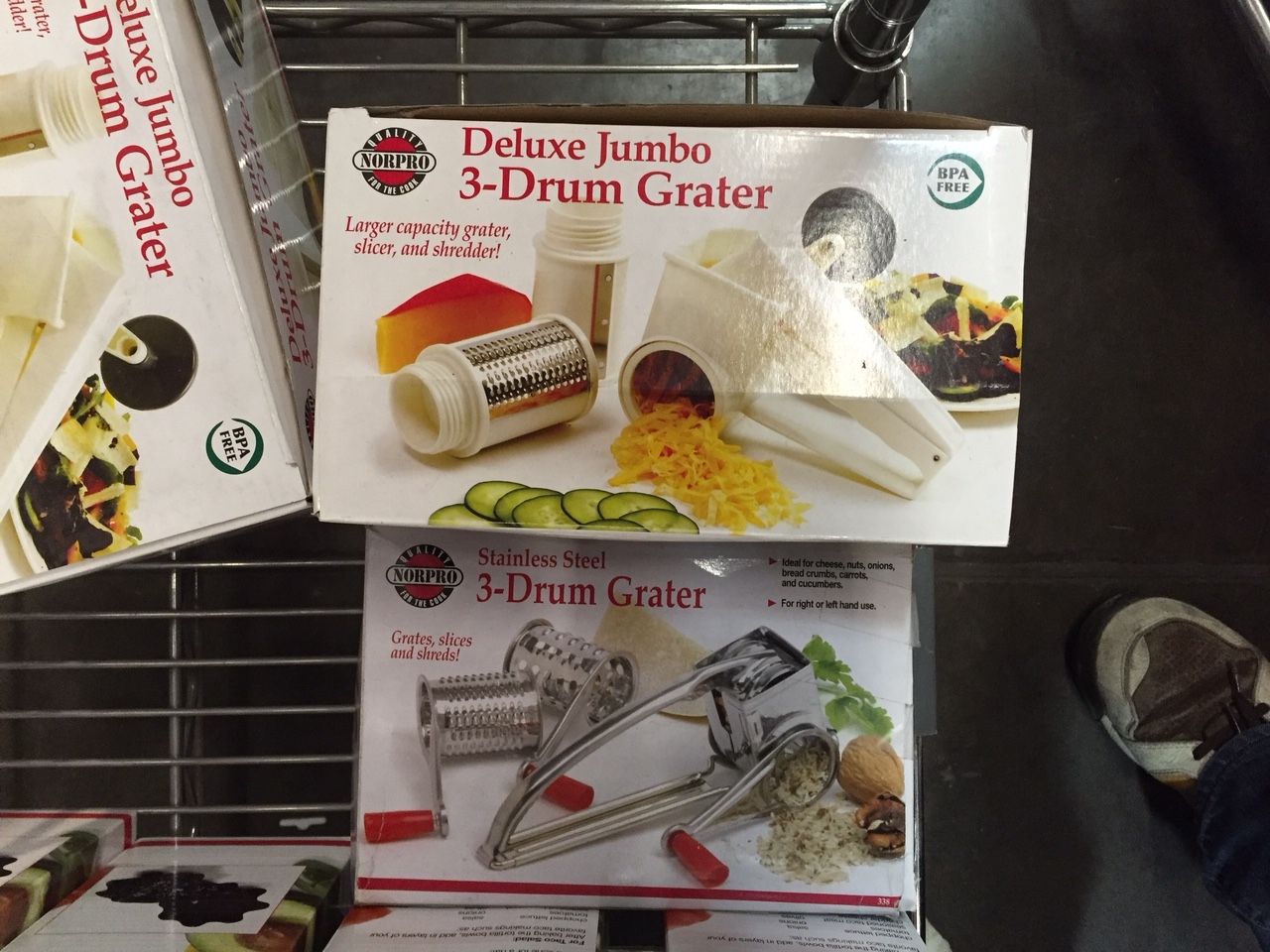"It's like Donald Rumsfeld said," I explained over donuts to our assembled employees on the first morning of Shiba Ramen, "you go to war with the army you have." I realize it's not exactly fashionable to quote the Bush era Secretary of Defense. So what in the world was I doing inviting him to Shiba Ramen orientation, quoting him to a group of people who, in the main, were in elementary school when Rumsfeld was at his warmongering zenith?
Back in the days of time-of-our-choosing military interventions, voices less sanguine than those of Rumsfeld often cited the Powell Doctrine, named for Colin Powell's set of guideposts for avoiding Vietnam-style quagmire. One of Powell's central tenets was that if you choose to intervene in a conflict, you do it with overwhelming force so you can achieve the objective and extricate yourself quickly. Sensible, I completely agree. I never want to risk an important job by committing insufficient resources. It's bad for my mental health.
At Shiba Ramen, though, being conservative with our staffing levels to open the restaurant wasn't really possible. By the time we moved in, we'd managed to hire two prep cook/dishwashers, five front of house staff, and only two proper cooks, one of whom was part-time. This was not for lack of trying--it's a tight labor market, especially for a newcomer. So we had to make do with a fairly egregious shortage of help in the kitchen. Our goal was to open to the public within five days.
So back to Donald Rumsfeld. If you ignore his context--the problem of ill-equipped troops a year after the Bush Administration's discretionary invasion of Iraq--he was right: you do the best you can with the resources you have. On the first morning of Shiba Ramen, I had no idea just how right Rumsfeld's advice would turn out to be. It turned out that after a grand series of meltdowns and flake-outs, four of our original employees were gone within a week.
Donut, anybody?
These Guys.
Game Plan
So here we are, two restaurant owners who have never set foot in a restaurant kitchen--if you don't count sitting at the in-kitchen table in Buca di Beppo once in college--supported by a cast of employees too few in number and too thin in experience. We risked getting bite wounds from rabid foaming-at-the-touchscreen Yelpers if we didn't do something from the outset to control the terms of the conflict.
Our approach was to take the opening in bite-sized chunks. It was obvious to us that under no circumstances should we attempt to open with our full menu, or for anything close to Public Market's full daily hours of 11 a.m. to 9 p.m. So we resolved to open with just two or three ramens, and just one or two sides. Of the ramens, we would make a very limited amount each day, and stay open only until we sold out. We planned on ramping up to full menu, full hours over 4-6 weeks, as we added staff, figured out the production and service processes, and got the kitchen fully provisioned for peak operation.
The point was to give ourselves enough space to retain our sanity and build confidence, while staying focused on adding hours, volume, and product scope every week until we reached full capacity. Our thought was that we needed to actually make and serve ramen to train the staff, so we started preparing product right away. We shot for a very small friends and family event at the end of Day 3.
Into the Breach
No sooner had our donut-paved tour through Ramen 101 and the Employee Handbook (!) concluded than we had our first employee casualty: a fresh-faced 20-year-old just arrived in California two weeks earlier from a hometown somewhere on the Minnesotan tundra. She turned deathly pale and fled the premises. We learned the next day when she came to quit that she'd had a panic attack brought on by the expected intensity of the experience. Eek! Maybe I should have left Rumsfeld out of my pregame speech. Farewell, innocent one, we pour out some bone broth for you.
Orientation thus concluded, everyone got down to business. Hiroko worked with the kitchen people to start learning how to make ramen, and the front of house people learned about the point of sale system and helped setting up. I think I ran errands. In fact, I'm pretty sure I spent the first ten days of Shiba Ramen running errands. Innumerable trips to restaurant supply stores, Home Depot (tools!), Costco, and groceries. There are an astonishing number of odds and ends to buy; lots of things that are totally obvious, but you're so consumed with thinking about everything else that they don't occur to you until the moment you actually need them. Adapters for the beer taps, CO2 tanks, a step ladder, a mop bucket, and on and on.
And then there were the grocery trips. When we first opened, all sorts of deliveries were coming in from a range of suppliers; the Japanese goods suppliers, meat distributor, general restaurant wholesaler, beer vendors, etc. But it wasn't like everything we needed came at once, so we hoofed it to all sorts of different markets and wholesale places: Chinatown markets, Safeway, 99 Ranch, Berkeley Bowl, Cash & Carry, etc. Anyway, chief gopher was a good job for me. Kept me appropriately out of the way in the kitchen. Way too intense for me in there, at least as the husband of the chef. Much safer in the car.
Top Gallery: The night we moved in. Still calm, no mess. Above and Below: Images sent from the field back to HQ. Which grater? Is this the right bok choy? Bottom Gallery: Cash drawer goes in and--JFC!--the first delivery arrives in the loading dock.
Training Exercise
While I was busy cruising all over the East Bay, Hiroko and the team were busy starting to make ramen, organizing the cold and dry storage, and stocking the shelves with ingredients. By the third day, we were ready to serve ramen. I use "ready" in the loosest sense of the word. We were capable of serving a limited amount, to people who weren't paying for it. We invited some friends and neighbors, and so did our workers. We asked people to pay for their drinks, but we gave ramen out for free.
I think we only served about 30 bowls that first night, but I'll tell you it felt like we served many multiples of that amount. We tested out four different ramens, including our labor-intensive miso, so there were a lot of moving parts for our first service run. We survived without any real issue, although our nerves were completely frayed by the time we got home that night. Objectively, I think it was fine, but the intensity of the past few days had really caught up to us. Things weren't helped by the fact that one of our new employees inexplicably tried to foment trouble at the end of the service, sidling up to me while I was washing dishes and telling me that some of the "other employees" were unhappy about "lack of direction" or some other vague complaint, and that we didn't yet have a tip jar. Because we'd had a good feeling about this employee up until then, we took her comments seriously, and fretted more than we should have that night at home.
Of course, the impossibly bad timing of her comments also gave us pause about this employee, suggesting poor judgment or even a manipulative nature. Not only were Hiroko and I enduring some of the most stressful days of our lives, but it was the practice day, two days before our actual opening! As you'll see next time, our misgivings were confirmed in dramatic fashion two nights later, when this employee decided to stage a showdown about the conditions of her employment, fifteen minutes before our first public ramen service.
By the way, Rumsfeld's complete quote was "you go to war with the army you have, not the army you might want or wish to have at a later time." No kidding.












